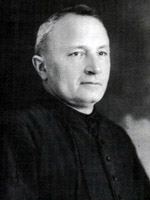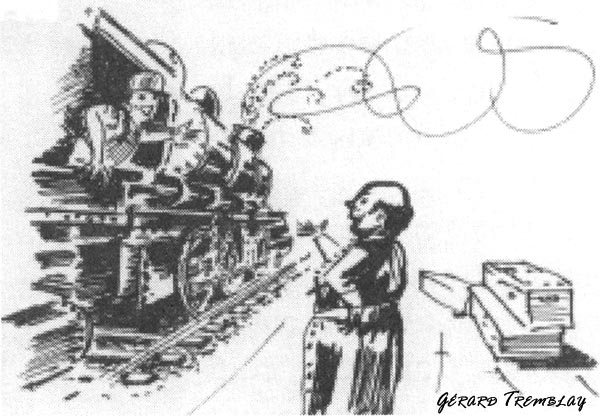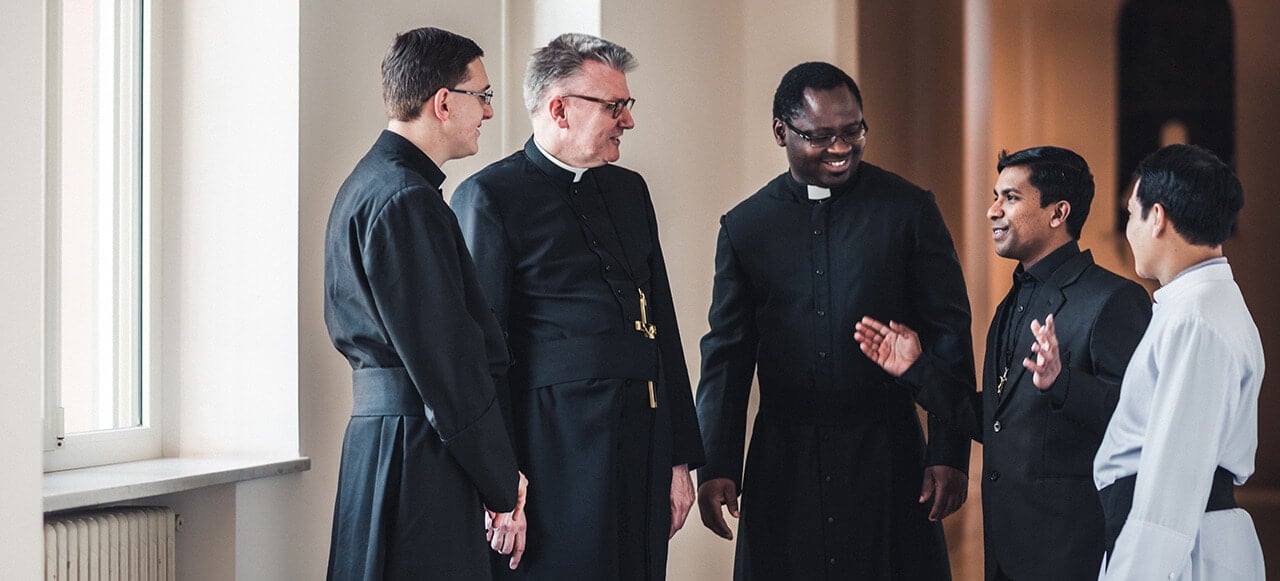
On the First Friday of each month, for twenty-five years, this apostle of the Sacred Heart accomplished the remarkable feat of bringing together workers in their overalls or work blues for an hour of adoration. In 1923 he founded the retreat house called “Jésus-Ouvrier” where, until his death, he encountered thousands of men and young people. He had the gift of riveting them to the point of winning them over to Christ and often helping them to become true apostles. An incomplete list reveals the name of eighty priests who owe the beginning of their vocation to him, as well as some thirty religious men and more than one hundred religious women. This man, this priest, this extraordinary Oblate, as you may have guessed already, was Father Victor Lelièvre.

Fisher of men in a locomotive
We can easily imagine how an apostle of this mettle can never be deterred by an obstacle when a soul is to be won for God. One day he met a good woman on the street whose husband was a railroad engineer. “If ever you meet my husband,” she said, “please convince him that he must do his Easter Duties…; he always says that he doesn’t have the time.” A few days later, the Oblate was waiting on the platform at the Pérade station. While the train was stopped for a few moments, the priest recognized the engineer, perched up in his steel charger. “Arthur, come down here for a moment, I want to speak to you.” “Impossible , Father, I don’t have the time, we leave in two minutes”. “Well then, let me climb up to you.” In a hop he was ascending the ladder. In no time he was standing next to his man. The train departed, and Arthur was feeding fuel into the boiler. Between two shovelfuls of coal the Oblate heated Arthur’s conscience to the boiling point, leading him to the mercy of the Sacred Heart of Jesus. Two days later, this same locomotive tipped over accidentally while passing along the port of Québec, causing the death of the one who had repented two days prior.
A mould for pastors
Another interesting adventure took place in the outskirts of Paris, France. While on visit in Europe, Father Lelièvre was invited to speak to a group of communists somewhere in a warehouse. As a podium they presented him with an oil drum. For more than an hour he succeeded in swaying that crowd of one hundred worthy hearts. Alternately he made them laugh with wide-open throats, cry, reflect and then look deeply at their inner selves. After an hour, cries arose from this agitated crowd: “Enough, enough.” The Oblate was under the impression that he had not succeeded… but no, they only wanted him to rest while they served him wine, so that he could continue. At the end, they passed the hat. Over his objections, he was obliged to accept the 210 francs from these engrossed and enthusiastic workers. They said to him: “Keep this, and have a mould made for us that will turn out pastors like you.”
André DORVAL, OMI
